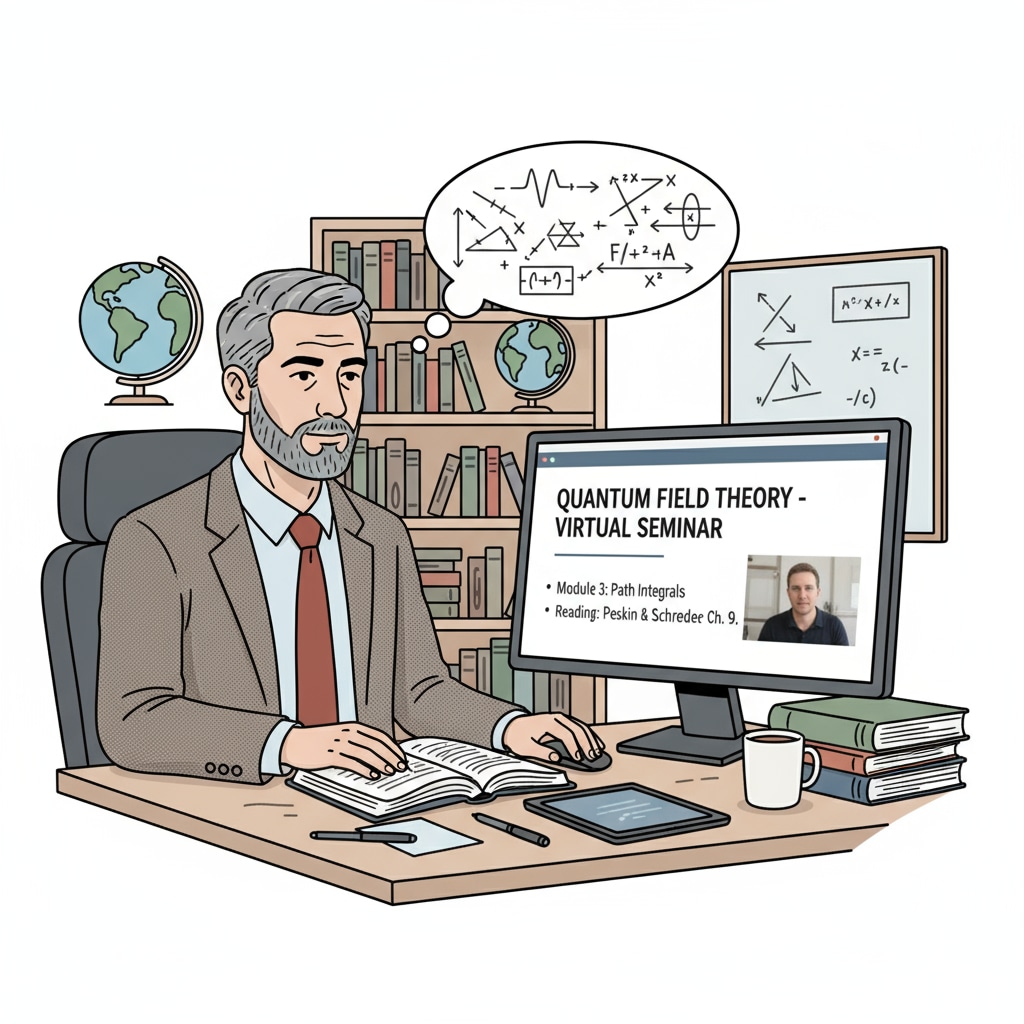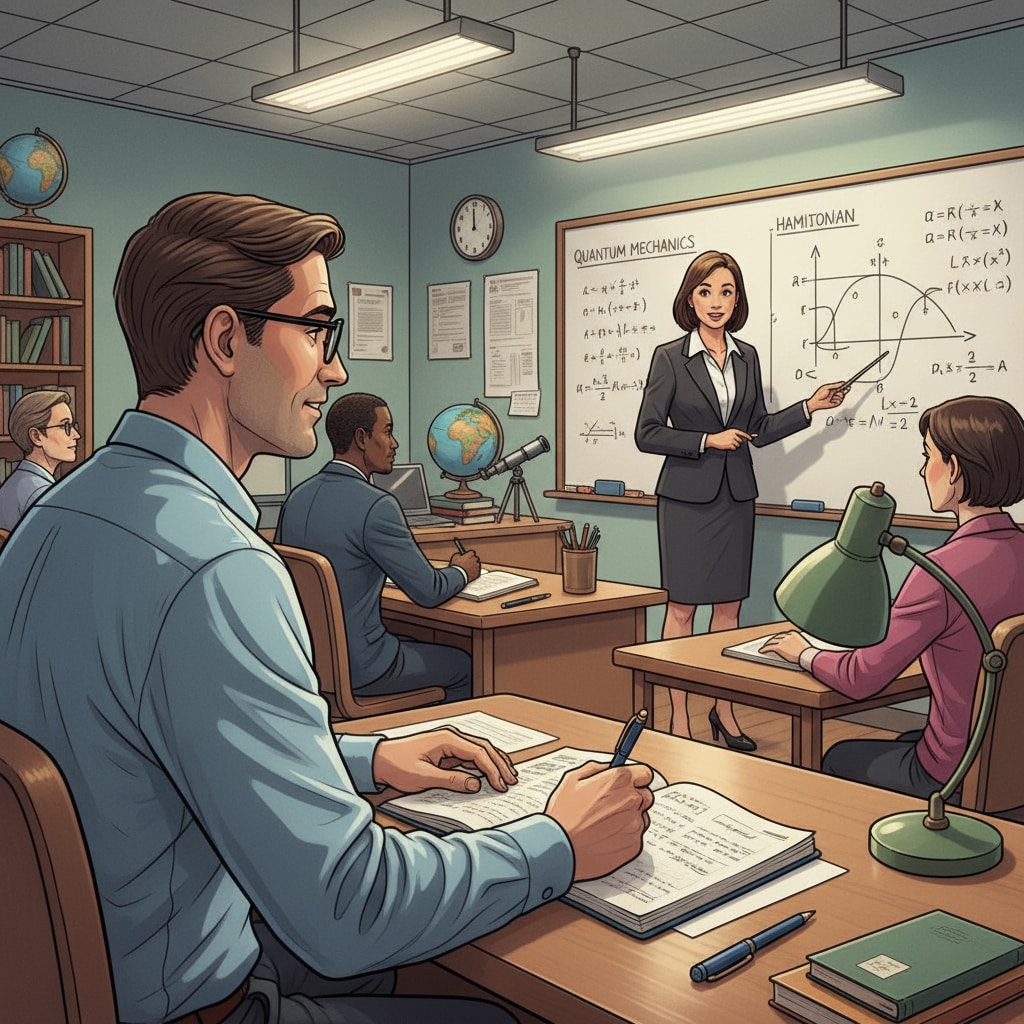In-service physics teachers often aspire to enhance their knowledge and skills through postgraduate education. This pursuit not only enriches their academic expertise but also benefits their teaching careers. Evening courses and virtual courses have emerged as practical options for these teachers to balance work and study. Let’s explore the viable paths for in-service physics teachers to pursue postgraduate courses.

Balancing Work and Academic Pursuits
For in-service physics teachers, juggling work responsibilities and postgraduate studies can be challenging. However, with proper planning and time management, it is achievable. First, set clear goals. Determine what you hope to gain from the postgraduate program, whether it’s deeper knowledge in physics, improved teaching methods, or career advancement. This clarity will help you stay focused.
In addition, create a detailed schedule. Allocate specific time slots for study, ensuring that you don’t neglect your teaching duties. Many teachers find it helpful to use a planner or digital calendar to keep track of their commitments. For example, you could set aside a few hours on weekends or evenings for coursework and assignments.
Moreover, communicate with your school administration. Let them know about your plans to pursue postgraduate education. They may be able to offer support, such as flexible work arrangements or even financial assistance. Postgraduate Study for Teachers on Teach.org.uk provides valuable advice on this aspect.
The Appeal of Evening Courses
Evening courses are a popular choice among in-service physics teachers. One of the main advantages is the face-to-face interaction with instructors and fellow students. This personal connection can enhance the learning experience, allowing for in-depth discussions and immediate feedback.
Another benefit is the structured learning environment. Evening courses typically follow a set schedule, which can help teachers stay disciplined and on track with their studies. Additionally, the physical classroom setting provides a dedicated space for learning, free from distractions.

Furthermore, some evening courses may offer hands-on laboratory sessions, which are crucial for physics studies. These practical experiences can deepen your understanding of theoretical concepts. According to Britannica’s Education section, practical learning significantly enhances knowledge retention.
The Rise of Virtual Courses
Virtual courses have revolutionized postgraduate education, offering unparalleled flexibility. In-service physics teachers can access course materials and lectures from anywhere with an internet connection. This means they can study at their own pace, fitting learning around their work and personal commitments.
Virtual courses also often provide a wide range of resources, such as recorded lectures, online forums, and interactive simulations. These resources can be accessed at any time, allowing for repeated review and in-depth exploration of complex topics.
Moreover, virtual courses eliminate the need for commuting, saving time and energy. This convenience makes it easier for teachers to balance their teaching responsibilities and postgraduate studies.
Specific Postgraduate Courses in Physics and Cosmology
When it comes to postgraduate courses for physics teachers, there are various options. Physics programs may focus on advanced topics such as quantum mechanics, relativity, or condensed matter physics. These courses can deepen your understanding of the fundamental principles of the universe.
Cosmology courses, on the other hand, explore the origin, evolution, and structure of the universe. They cover topics like the Big Bang theory, dark matter, and cosmic microwave background radiation. Studying cosmology can provide a broader perspective on the physical world, which can be incorporated into your teaching.
Some universities also offer interdisciplinary programs that combine physics with other fields, such as astronomy, mathematics, or engineering. These programs can open up new career opportunities and enhance your teaching skills by integrating different perspectives.
Obtaining School Compensation
Many schools recognize the value of their teachers pursuing postgraduate education and may offer compensation. This can come in the form of tuition reimbursement, stipends, or release time from teaching duties. To increase your chances of obtaining compensation, present a well-prepared proposal to your school administration.
Highlight how the postgraduate program will benefit your teaching and, ultimately, the students. For example, you could mention how new knowledge and teaching methods gained from the program will improve student learning outcomes. Additionally, research any existing school policies or grants related to professional development.
Network with other teachers who have successfully obtained compensation for their postgraduate studies. They can provide valuable insights and advice on the application process.
In conclusion, in-service physics teachers have multiple viable paths to pursue postgraduate education. Whether through evening courses or virtual programs, the key is to balance work and academic pursuits effectively. By exploring specific courses in physics and cosmology and seeking school compensation, teachers can enhance their professional development and make a greater impact in the classroom.
Readability guidance: The article uses short paragraphs and lists to summarize key points. Each H2 section provides a clear focus. The proportion of passive voice and long sentences is controlled, and transition words are scattered throughout for better flow.


